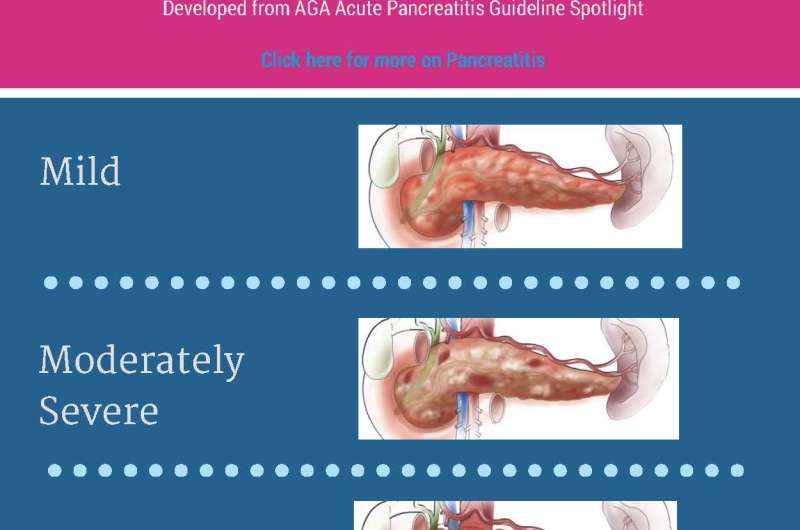Early treatment decisions can alter the course of care for acute pancreatitis patients

Management and treatment decisions made within the first 48 to 72 hours of hospital admission for acute pancreatitis patients can significantly alter the course of disease and duration of hospitalization. A new clinical guideline from the American Gastroenterological Association (AGA), published in Gastroenterology, the official journal of AGA, focuses on the critical decisions made during initial management of acute pancreatitis.
Management of acute pancreatitis has evolved slowly over the past century. However, emerging evidence challenges many of the long-held management paradigms regarding the benefit of antibiotics, the timing and mode of nutritional support, and the utility and timing of endoscopic retrograde cholangiopancreatography (ERCP) and cholecystectomy.
AGA's new guideline aims to reduce practice variation and promote high-quality and high-value care for patients suffering from acute pancreatitis. It addresses questions on the benefits of goal-directed fluid resuscitation, early oral feeding, enteral versus parenteral nutrition, the routine use of prophylactic antibiotics and routine ERCP in all patients with acute pancreatitis.
Acute pancreatitis is an inflammatory condition of the pancreas that can cause local injury, systemic inflammatory response syndrome and organ failure. In the U.S., acute pancreatitis is a leading cause of inpatient care among gastrointestinal conditions with more than 275,000 patients hospitalized annually, at an aggregate cost of over $2.6 billion per year, and evidence shows that the incidence has been rising.
The guideline is accompanied by a technical review and a patient companion infographic, which provides key points and important information directly to patients.
More information: Seth D. Crockett et al, American Gastroenterological Association Institute Guideline on Initial Management of Acute Pancreatitis, Gastroenterology (2018). DOI: 10.1053/j.gastro.2018.01.032



















